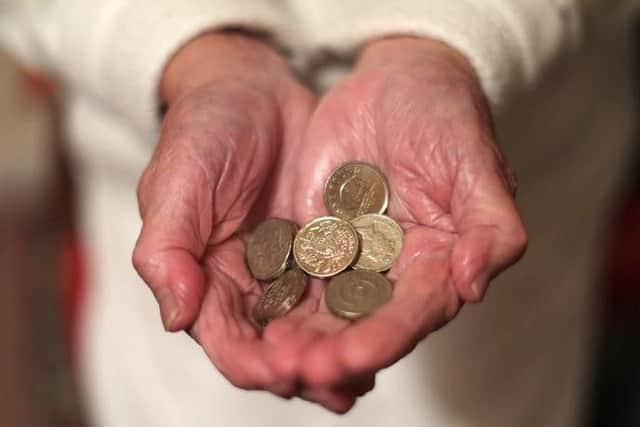State penison age increase: What the Highcourt ruling means for UK women and Backto60
Nearly four million women born in the 1950s have been affected by the changes, introduced by successive governments in an attempt to ensure "pension age equalisation", which have raised the state pension age from 60 to 66.
Two claimants - Julie Delve, 61, and Karen Glynn, 63 - took the Department for Work and Pensions (DWP) to court, arguing raising their pension age "unlawfully discriminated against them on the grounds of age, sex, and age and sex combined".


Advertisement
Hide AdAdvertisement
Hide AdThe pair, supported by campaign group Backto60, also claimed they were not given adequate notice in order to be able to adjust to the changes.
But, giving judgment in London today, Lord Justice Irwin and Mrs Justice Whipple dismissed the claim.
In a summary of the court's decision, the judges said: "There was no direct discrimination on grounds of sex, because this legislation does not treat women less favourably than men in law.
"Rather it equalises a historic asymmetry between men and women and thereby corrects historic direct discrimination against men."
The court also rejected the claimants' argument that the policy was discriminatory based on age, adding that even if it was "it could be justified on the facts".
What was the case about?
Nearly four million women who were born after 6 April 1950 have been affected. Many of them are not against equalisation itself, but take issue with the way in which the changes have been implemented.
Backto60 claims its members were not given sufficient notice of their new retirement age, leaving them with little time to prepare for the lack of state pension. The group has also raised issues about the speed of the state pension age rises.
In early June, the High Court in London heard two Backto60 campaigners' case at a judicial review over how the DWP raised the retirement age for women.
Advertisement
Hide AdAdvertisement
Hide AdBackto60 said its members had faced discrimination on the grounds of sex, age and both sex and age combined.
Ultimately the group wants all people affected by the state pension age changes to be paid the pension they would have received had they been able to retire when they had expected to - more than £40,000 a year.
What are the government's reasons?
The Government has maintained the changes about the state pension age were always "clearly communicated" and decided upon 20 years ago.
In an earlier statement, the DWP said: “The government decided more than 20 years ago that it was going to make the State Pension age the same for men and women as a long-overdue move towards gender equality, and this has been clearly communicated. We need to raise the age at which all of us can draw a State Pension so it is sustainable now and for future generations.”
The DWP has so far ruled out repaying the state pension to the affected women as it would cost the department billions.
Can women complain about the state pension age changes?
Many women have complained to the Parliamentary and Health Service Ombudsman about maladministration over the way the DWP communicated the state pension age changes.
But while the High Court considered similar issues, the ombudsman said it was "not practical or proportionate for us to investigate while similar and related issues are being considered by the court".
The ombudsman said it would take some time after the High Court ruling "before deciding whether or how to investigate".
Advertisement
Hide AdAdvertisement
Hide Ad"We will continue to accept complaints referred to us by MPs. However, we will take no further action on the complaints we have received or on any new complaints, either about DWP or ICE’s (Independent Case Examiner) service, until there is a High Court ruling and we have considered the outcome of this," it said on its website.
